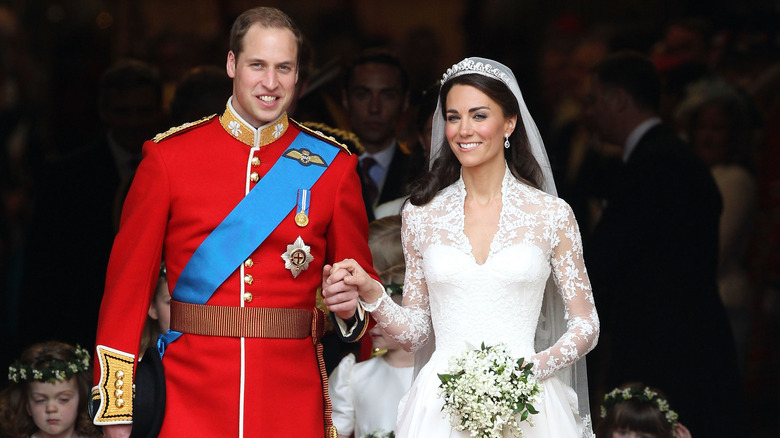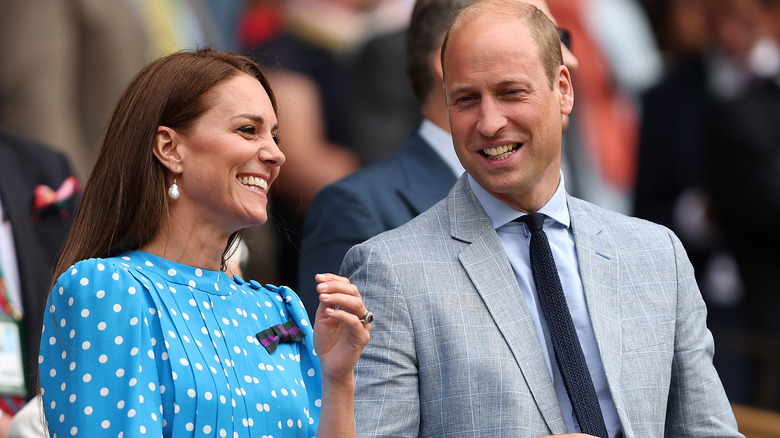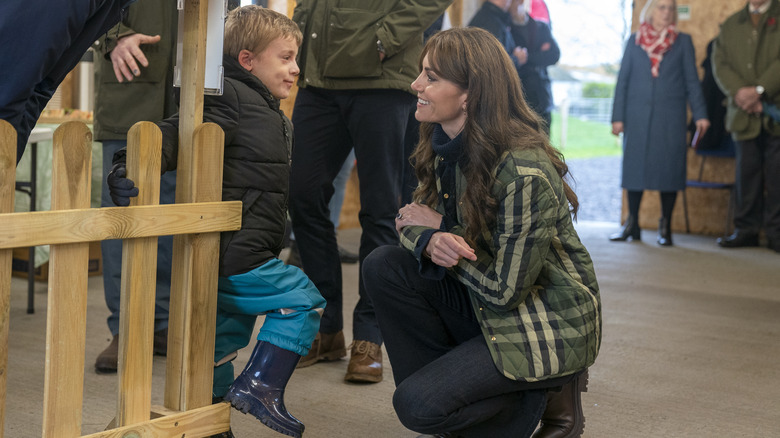Kate Middleton And Prince William Reportedly Received Couples Counseling Before Marriage
When William, Prince of Wales, and Catherine, Princess of Wales, got married in 2011, it was in a wedding ceremony unlike nearly any other — held at Westminster Abbey, Kate wearing a custom wedding dress, a ride to Buckingham Palace afterward in a horse-drawn carriage, and watched by millions around the world. But in some ways, their wedding was like anyone else's — Kate and William's wedding had a few mishaps, and the two both had some major jitters about the big day. What likely calmed some of those nerves, at least when it came to thinking about their marriage beyond the wedding day, was that the two reportedly went to marriage counseling together.
Before they tied the knot, palace officials confirmed that Kate and William reportedly met with both the Bishop of London and the Archbishop of Canterbury for counseling sessions. Both men were also a part of the couple's wedding ceremony, with the bishop preaching a sermon and the archbishop officiating the proceedings.
The Church of England, which Kate was confirmed into a couple of months before the wedding, suggests on their website that couples talk to their church leaders about what their wedding vows really mean and how to live them out in what they call "marriage preparation" or "marriage discussion." It sounds like William and Kate took that advice to sit down and talk about their marriage with someone in the church before the big day.
Kate Middleton reportedly had individual counseling before becoming a royal
Given the fact that the sessions were confidential, we don't know exactly what Catherine, Princess of Wales, and William, Prince of Wales, talked about, but we do know that there are lots of benefits to premarital couples counseling. It can help uncover potential problems that may crop up in the marriage, as well as give partners better ways to communicate with each other and solve problems together. It even lowers the rates of divorce.
Learning how to communicate better and learning more about each other before a wedding is something that any married couple can benefit from. However, something unique about William and Kate's situation that likely came up with their marriage counselor is how their relationship would be very much in the public eye, considering William's position as a future king of England. Navigating their life as a married couple would face more public scrutiny than nearly any other couple on the planet, and so far, it looks like their bond is as strong as ever. Whether that is due to the premarital counseling, we don't know, but it certainly can't have hurt.
Kate Middleton and Prince William both support mental health initiatives
Kate Middleton had a lot to do before becoming a royal, and a part of that included her own counseling to address the challenges she would face by marrying into the royal family. A source close to the palace told the Daily Mail before the wedding, "The royals are desperate not to have another downward spiral of a marriage, and they feel Kate has very vulnerable and soft spots." William reportedly helped ensure that Kate got support before their wedding as he saw the turmoil his mother faced during her marriage to his father.
The royal family has, in the past, been quiet about mental health. Princess Diana was notably one of the first to speak publicly about her struggles, and while the marriage between Charles and Diana didn't last, the two both attended therapy — though it seems as though it was more for them as individuals and not as a couple.
The next generation of royals has emphasized the importance of mental health. William and Kate, along with Prince Harry, helped start Heads Together, which aims to bring awareness of how important it is to talk about and care for one's mental health. Though the three haven't worked much together since Prince Harry's rift with the royal family began, they all support the mental health initiatives in their own ways, with Kate concentrating on helping make generational change by promoting mental health for young people.


